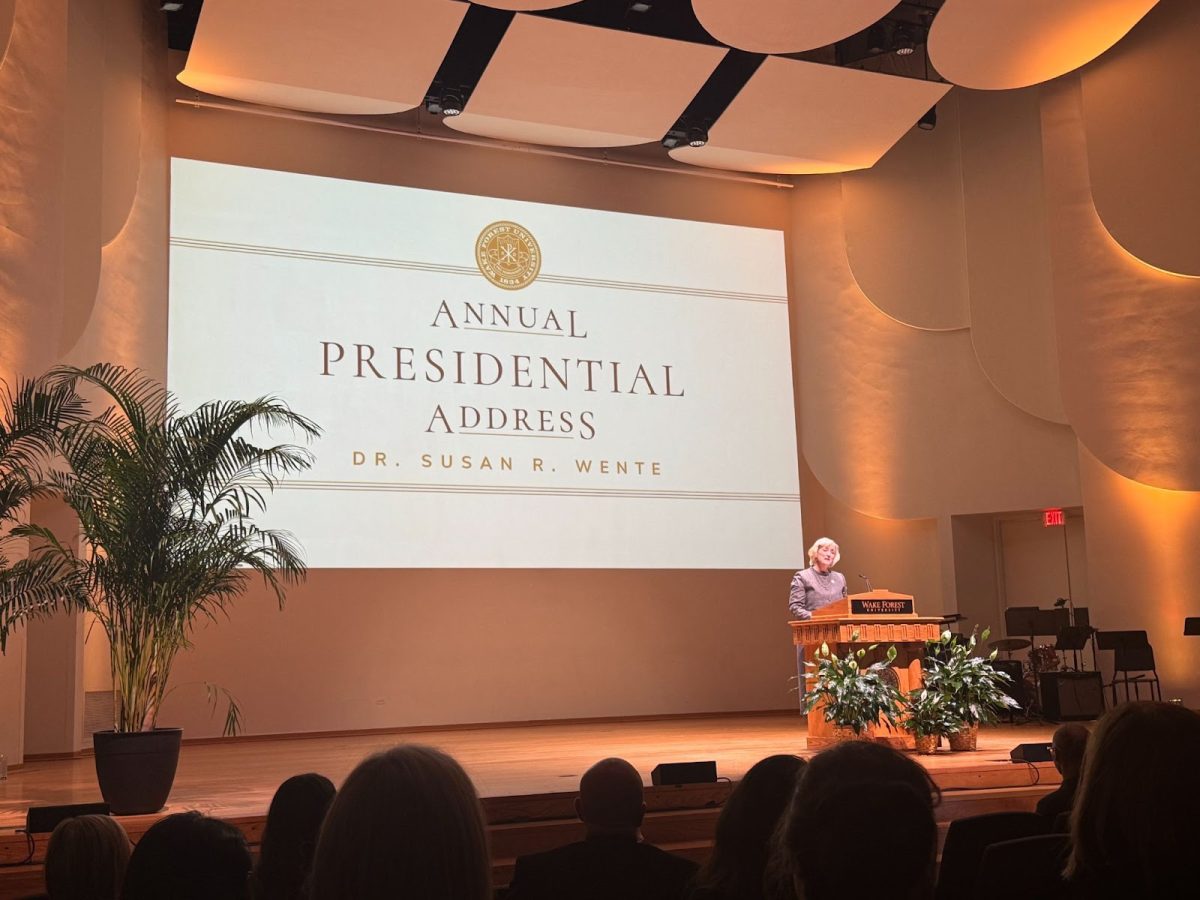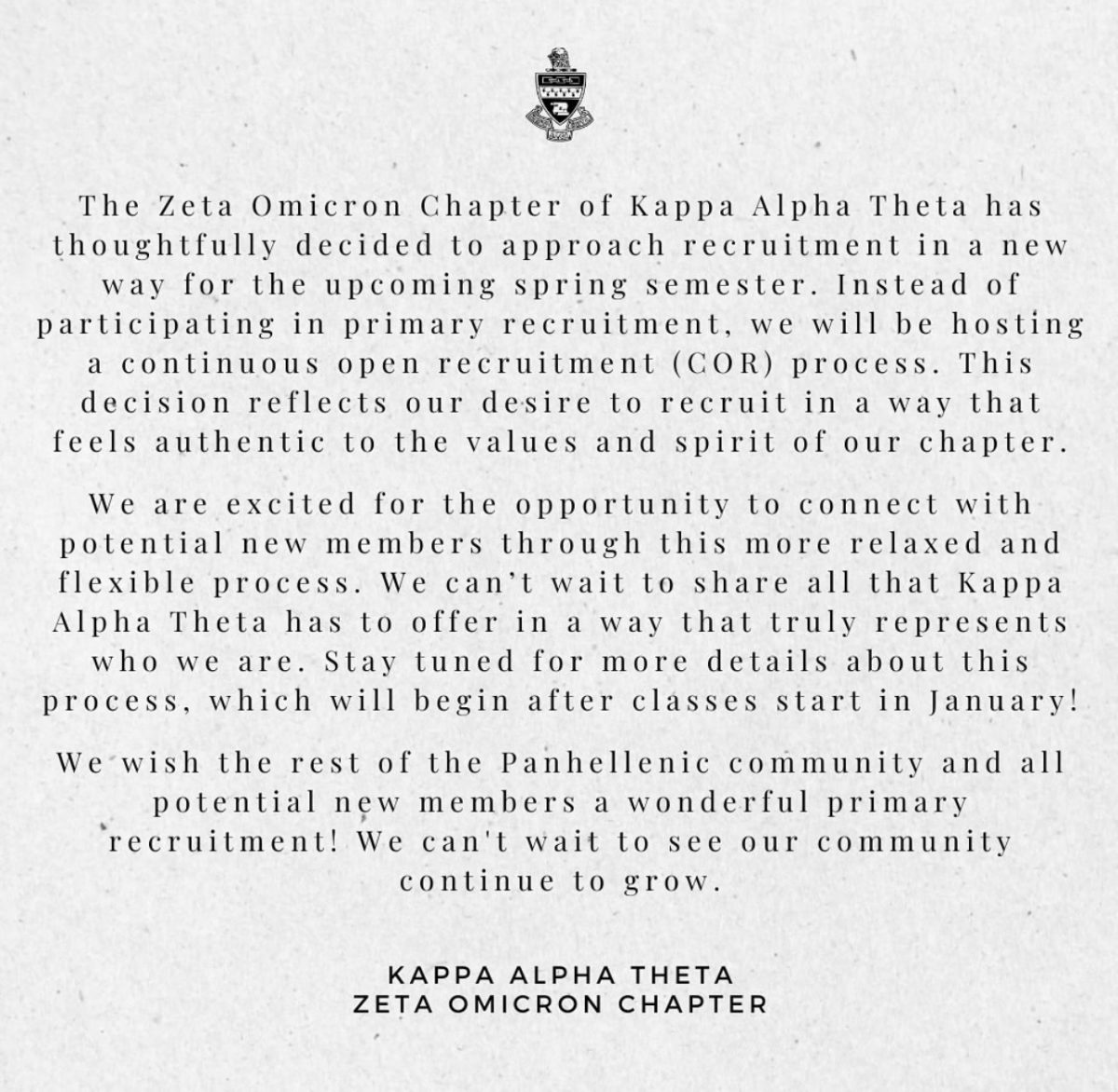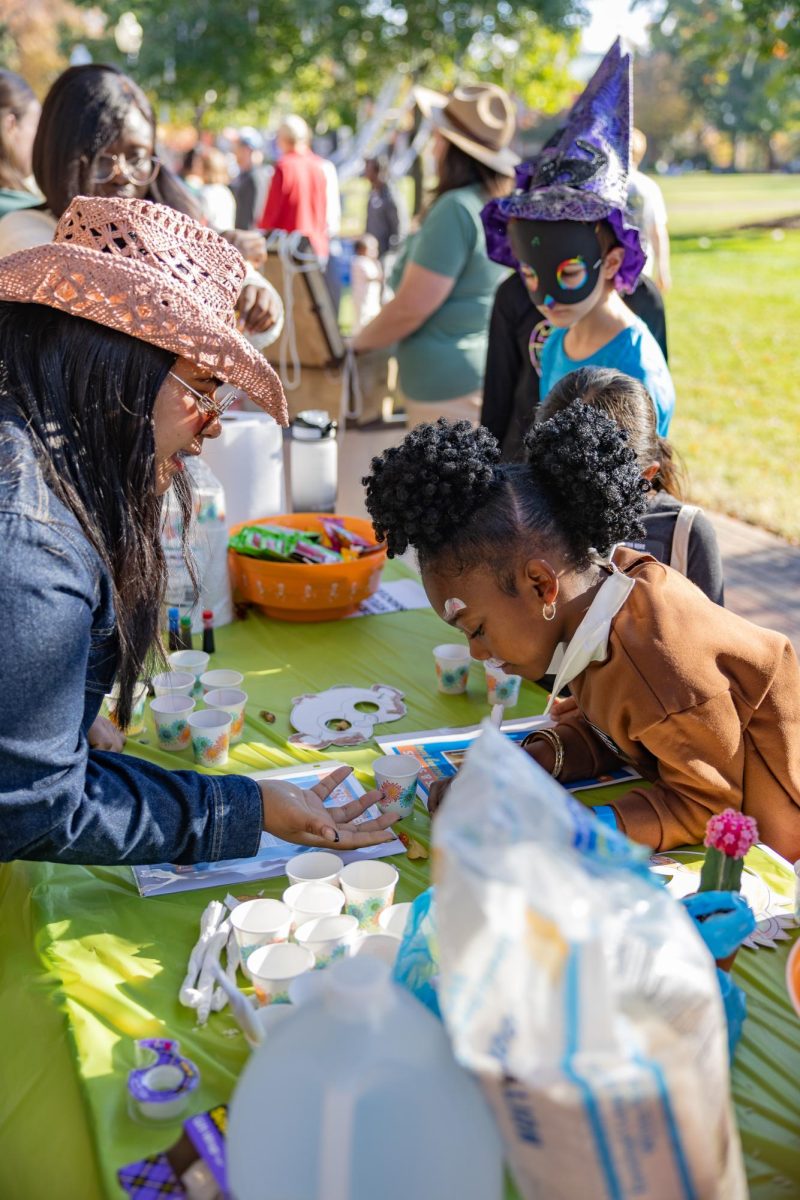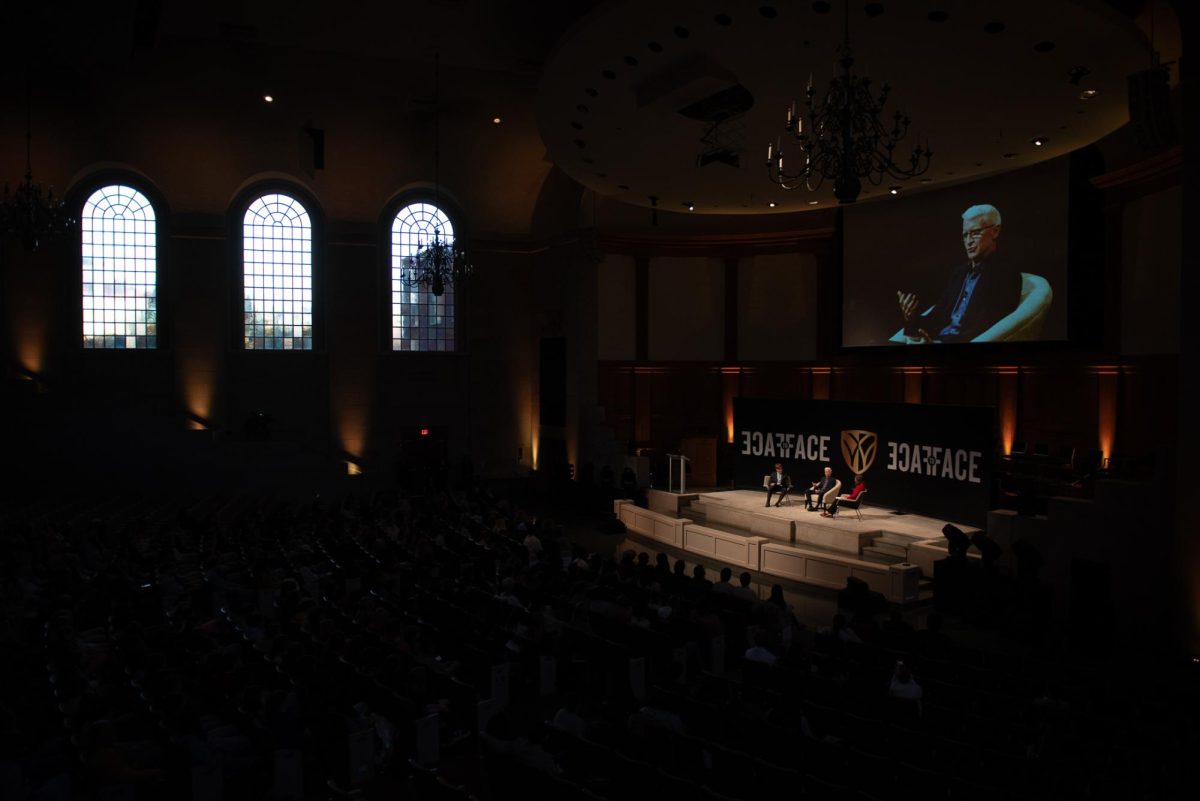Chizoba Ukairo is a junior from Columbia, Md., and a social activist on campus.
She is the director of the Branches social justice retreat, sits on the leadership board for Trailblaze, is a president’s aide, a student advisor to student government on activism, a Resident Adviser and a Black Students Alliance advocacy awareness chair.
Additionally, she is an Anna Julia Cooper Center Fellow, an Office of Multicultural Affairs intercultural ambassador, on the Honor and Ethics council, and a member of Wake the Vote.
With your involvement in so many groups at Wake Forest, how are you able to manage your time and balance all of these different commitments?
Intentionality has been really helpful to me, as well as time management.
Intentionality more so because I have to obviously prioritize some things over others, so really taking time and thinking about what’s most important to me helps guide what I choose to spend my time on.
I can’t go to everything at every time, and I have to give more time to some things over others, but I like to try and do what I can.
Social activism is clearly very important to you. Where do you find your inspiration?
I have always been really interested and good at leadership.
I’ve been inspired by leaders from the past such as Thurgood Marshall or Maya Angelou. That has always been something that keeps me involved in different things.
Also, just thinking about social justice and the way it impacts all of us, and the way it affects people who are more or less marginalized or more or less privileged keeps me passionate about achieving equitable policies and justice for everyone.
Understanding how intersectionality affects my life and everyone around me is the main thing that keeps me involved.
What does social activism involve and what does it look like to you?
Well, for me it usually starts with talking to people and seeing what major concerns they have.
I spend a lot of time at OMA — it’s a safe space for me on campus.
So I hear a lot of things there that are sometimes really comforting, or sometimes honestly infuriating.
I also learn a lot during meetings with different affinity groups.
A lot of concerns come up in these safe places as well.
So from there it becomes “how do we best address these issues for the student body and how do we engage administrators?”
A lot of times administrators aren’t as receptive as we may hope. Usually after we stage protests, be it a sit-in or a list of demands, we get more attention and then can move forward and work with administrators, sometimes, not all the time, to effect change and equity in different issues.
What is the area you care about the most?
If I could do an intersection, it would be that of race and gender.
When I first got involved in social activism I was a leader in NAACP, so race was the one I thought about the most.
While here at Wake Forest during my freshman year, I had the opportunity to attend the Pulse Institute retreat with the Pro Humanitate Institute. That retreat allowed me to understand intersectionality.
I can’t really choose one issue, but the intersection of race and gender is something that is really interesting to me and I’m also really passionate about it, especially as a black Nigerian woman.
The amount of violence and misunderstanding that comes to people marginalized in both of those identities is something that is really important to me and something that is regularly and poignantly discussed by my peers.
What exactly was your role in the social justice retreat and what did it entail?
The Branches retreat happened this year over fall break. I had the honor of serving as the student director.
Basically, the group of us that got to go to the Pulse Institute in July of 2014 decided we wanted to bring a similar retreat back to campus, so the inaugural one was in February.
We had the second one a few weeks ago over fall break, and that was an opportunity for Wake Forest students to leave and head to the mountains for a three day weekend.
We talked about socioeconomic status, gender, race, physical ability, religion, sexual orientation and intersectionality.
It was a very intentional way to draw students out and offer a lot of education and honest dialogue to hopefully increase understanding about not just gender and race, but the other four identities as well.
We introduced intersectionality to the participants there so they could see how all these different parts of our identity overlap and affect us in our everyday activities.
You’ve mentioned intersectionality multiple times. How would you define that in your own words?
It’s actually my favorite word. I would describe intersectionality as the unique way all of our identities overlap and affect us.
It’s basically how all of these different parts of us come together and make us who we are. The fact that all our different identities have different weights to us, but are all important to making us who we are.
What are your career plans?
I’m a psychology major, and I’m also pretty interested in going to law school in Washington D.C., hopefully at Georgetown.
Mental health is also something that I’ve been interested in learning more about and understanding how the campus responds to it.
If I could do it perfectly, I would get a dual degree. I would get my master’s in public health, and also get a law degree.
How would you suggest other students get involved in activism on campus?
There are so many ways to get involved on campus! The Pro-Humanitate Institute, in my opinion, does a wonderful job at giving students opportunities to engage and get educated about social justice, service or whatever part of their identity they are interested in.
The Women’s center, the LGBTQ center and the Office of Multicultural Affairs are three offices that I go to regularly to in order to find ways to become educated and engaged.
They offer their own more specific programs, but they are still cool ways of getting engaged and involved, or just learning more about different identities.
What are your goals for your activism?
I hope to create space for people to feel safe and comfortable discussing their identity.
With that same space, I want to help them in understanding their power as a student to affect change.
I also want to give people the tools to create the most inclusive spaces that they can in their own scopes of influence.








